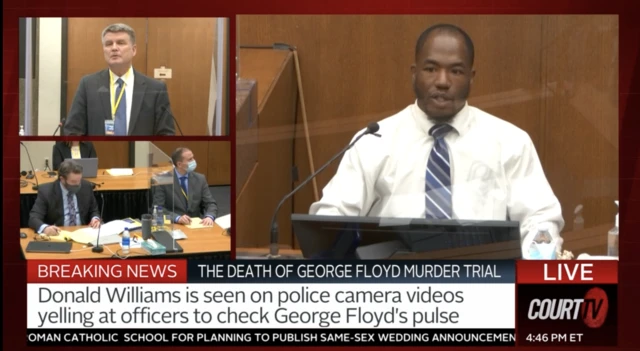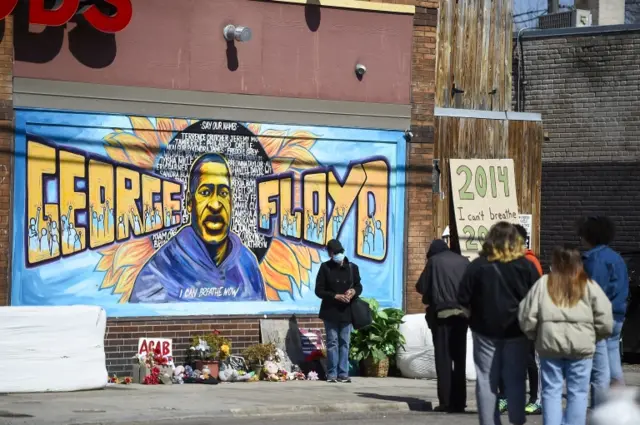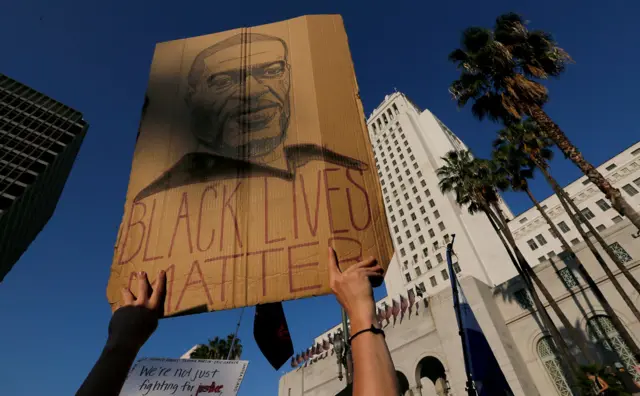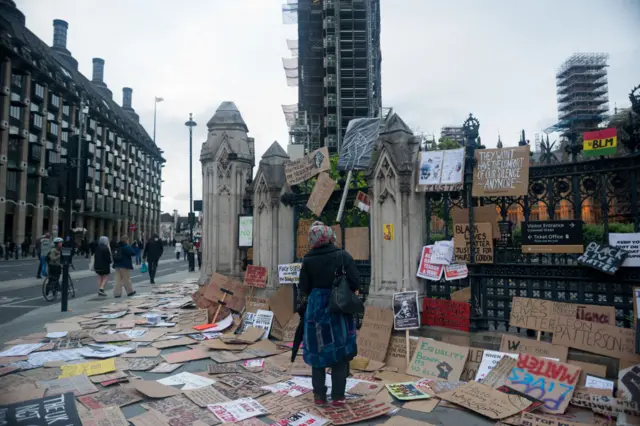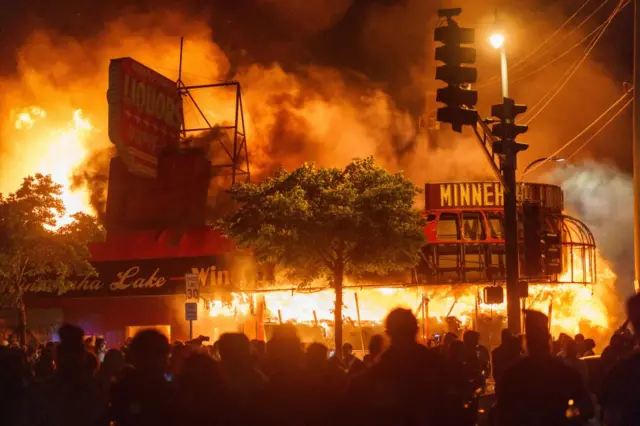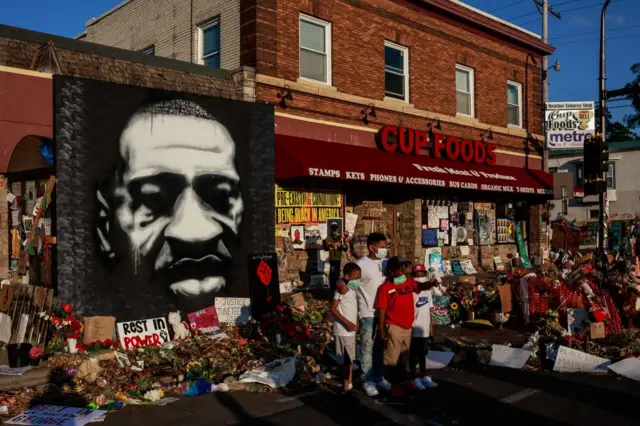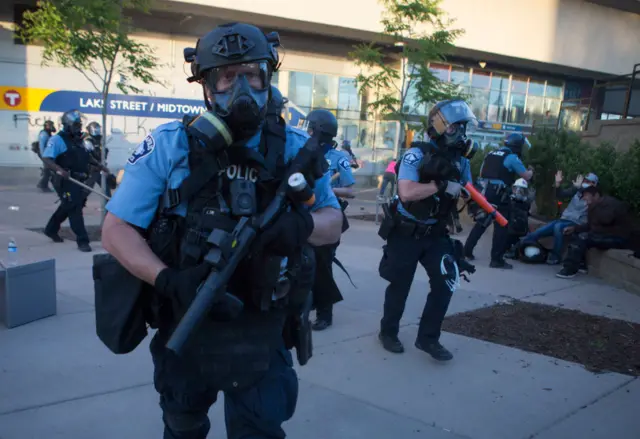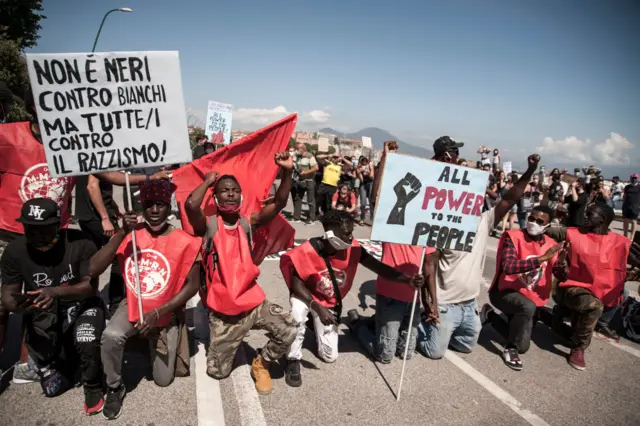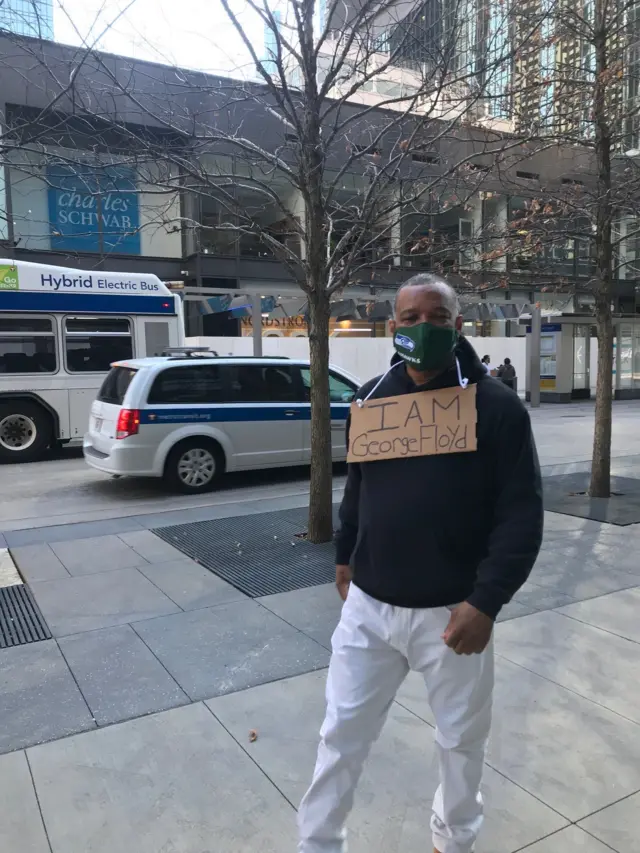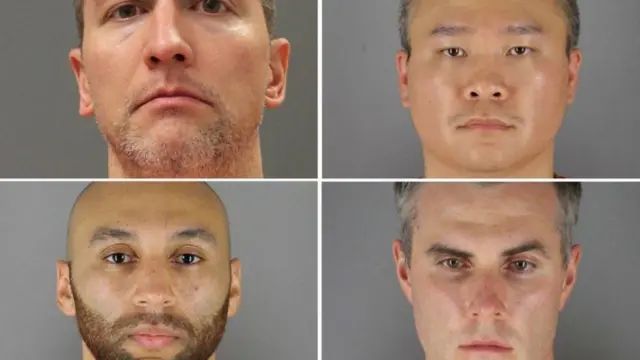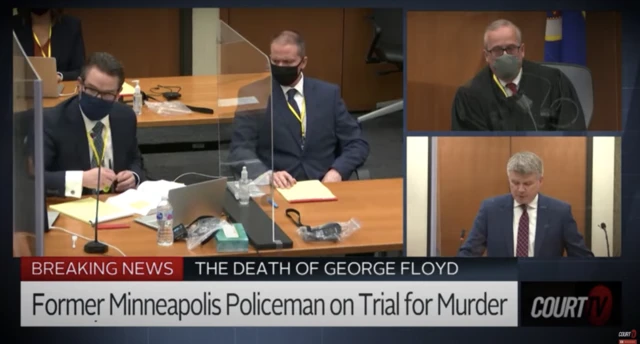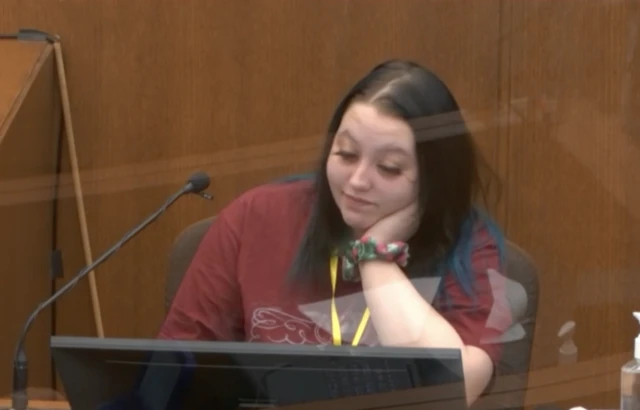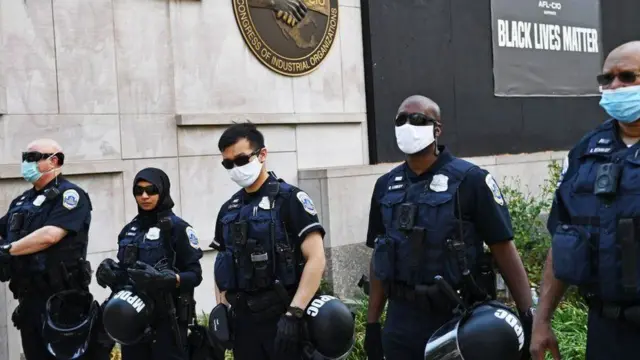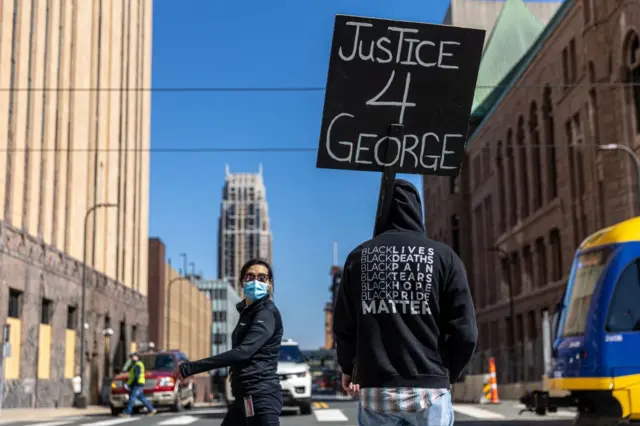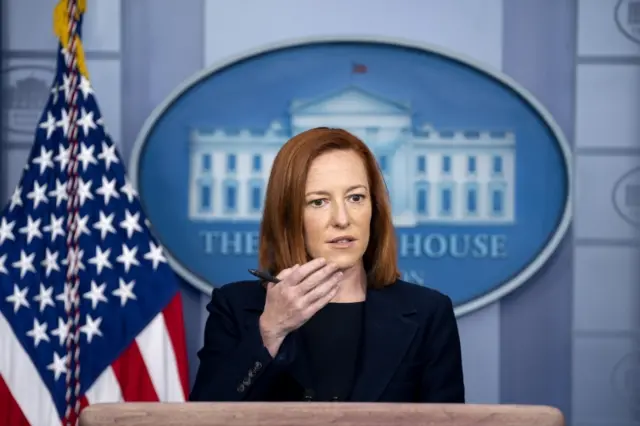What did you see in the arrest video?published at 21:50 BST 29 March 2021
 Tara McKelvey
Tara McKelvey
BBC News, Minneapolis
Millions of people have seen the video of Georg Floyd's death, observing how Derek Chauvin placed a knee against his neck during his arrest.
It is the most important piece of evidence in the trial.
Here in Minneapolis, a few blocks from the courtroom, Alewanea Bey, a personal care assistant, tells me that watching the images was harrowing:
“When I looked at him, I saw hatred in his eyes,” she says, referring to Chauvin, as she saw him in the video.
She describes how he observed those who were nearby, while he was pinning Floyd to the ground: “It’s like he was taunting: ‘I dare you to come.‘”
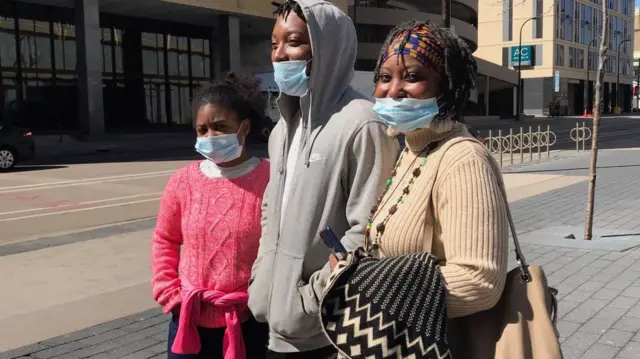
Alewanea Bey and family members follow updates outside of the court
Prosecutors showed the video in the courtroom, focusing jurors’ attention on Chauvin.
Defence attorneys are steering their attention to other issues, such as Floyd’s physical condition at the time.
